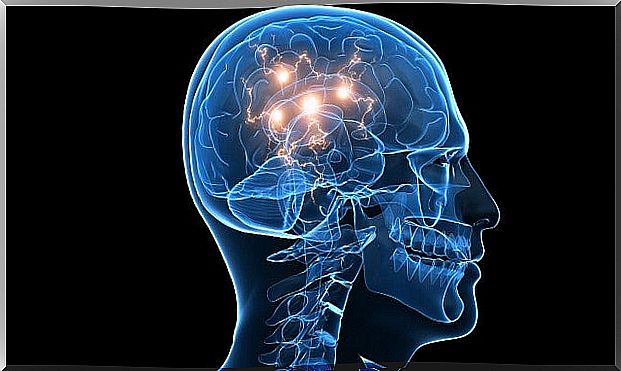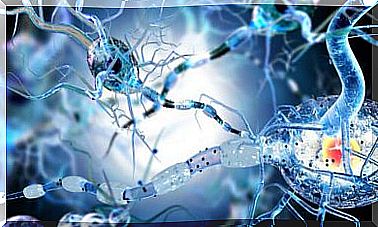Deprax, What Is It Used For And What Are Its Side Effects?

Deprax is a second generation antidepressant medication. Its active substance is trazodone and it is used to treat chronic depression, insomnia and anxiety states. Thus, and although the advantage of this psychoactive drug is undoubtedly in its more or less rapid action, we cannot ignore those side effects that, as always, must be taken into account.
The trazona (whose commercial name in Spain is Deprax) has been with us for almost 60 years. It was discovered and commercially developed in Italy in 1961, when trying to find another therapeutic alternative, another so-called second-generation drug that acts as a selective serotonin reuptake inhibitor (SSRI). The result was this capsule, usually pink in color, so prescribed until recently.
The manufacturer usually points out its main benefit on the leaflet: its effectiveness during the first week of administration. Likewise, it is also added another fact that many patients were looking for at one time, namely, to use an antidepressant drug that did not favor weight gain. On the other hand, these supposed virtues include one more, one that made Deprax one of the best-selling drugs during the 70s and 80s: it was one of the cheapest drugs.
Now, something that was evident in those early years was one of its main side effects: orthostatic hypotension (lowering of blood pressure when the person stands up). Little by little, trazadone was found to be much more effective and safe in smaller doses. That adjustment has allowed that to this day it continues to help us effectively in the treatment of various conditions.

Deprax, how does it work and what is it administered for?
Something that neurologists and psychiatrists tell us is that the brain is much more complicated than we think. To this day, we still do not know how antidepressants really work, and it is not always possible to predict what type of drug is the most suitable 100% for each patient. Thus, the Deprax, despite having been in our market for almost six decades, continues to have defenders and detractors. Some warn of its often unpredictable side effects. However, there is no shortage of studies that reveal its great efficacy in different disorders.
Let us now see in what clinical conditions Deprax is usually prescribed.
- Clinical depression with or without anxiety.
- Chronic insomnia
- Excessive worry.
- Fibromyalgia accompanied by serious problems falling asleep.
- Nightmares and other sleep disorders.
- Schizophrenia.
- Alcoholism.
Likewise, it should be noted that Deprax has shown, according to several studies, a great utility in patients with post-traumatic stress. All those people who showed insomnia, nightmares and high anxiety associated with trauma, show good improvement on average with this drug.
How does Deprax work?
As we have pointed out, Deprax is a second generation drug, that is, it acts as an antagonist and inhibitor of serotonin reuptake. Now, what differentiates this drug from Prozac, for example, is that we are dealing with a chemical compound from the phenylpiperazine family. This translates into some advantages and other disadvantages. The benefit is that it is a 5-HT receptor inhibitor. This means that its action to treat anxiety and depression is high.
Now, what it does is also block alpha adrenergic receptors and serotonin transporter proteins. All of this can lead to a very wide range of side effects, although they are not very serious.

Side effects of Deprax
There are patients who take Deprax without showing any side effect. Other people, on the other hand, usually show some problem, some alteration that in general, can be due to other conditions (certain diseases, interaction with other drugs or foods, etc.). Thus, something that should be taken into account is that this drug is not recommended in people with liver, heart or kidney problems …
Also, it cannot be taken in combination with other sedatives, heart drugs, antibiotics, blood thinners, or even natural medicine drugs like St. John’s wort. We must follow every indication of the doctors to the letter.
Let’s now see what the main side effects are.
- Fluid retention.
- Constipation or diarrhea
- Dry mouth.
- Rashes and itchy skin.
- Sweating and shaking
- Feeling of confusion, restlessness …
- Tachycardia.
- Headache.
- Blurry vision.
- Loss of appetite and weight loss.
- Flu-like symptoms

In conclusion. At present we already have newer, safer drugs with less secondary symptoms. However, options such as Deprax are still common in psychiatric practice for a reason: when what we have are patients with concomitant depression, that is, accompanied by anxiety, insomnia, nightmares and psychological discomfort, this drug is one of the most effective.









